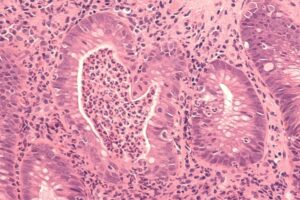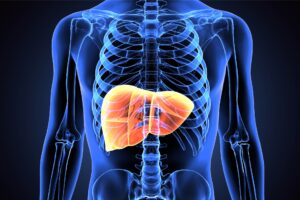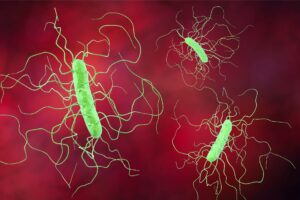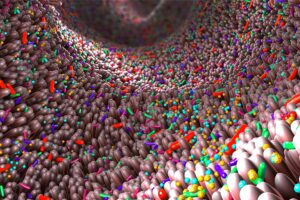Gastroenterology
Gastroenterology
Researchers have found that disrupting the microbiota-gut axis by altering circadian rhythms or diet can drive Crohn-like inflammation of the intestine in mice.
Gastroenterology, Immunology
Fecal microbial transplant could be a promising treatment for intestinal graft-versus-host disease caused by stem cell transplantation.
Gastroenterology
A new study, published in Cell Metabolism, identified a microbial signature that is able to diagnose cirrhosis in people.
Gastroenterology
The American Gastroenterological Association (AGA) evaluated available evidence on clinical efficacy of probiotics for most digestive conditions.
Gastroenterology
A study, published in Cell Host & Microbe, suggests why undernourished people may be more susceptible to intestinal infections than healthy individuals.
Gastroenterology
A study published in Cell Metabolism shows that the gut microbiota can act at a distance to protect against liver damage.
Gastroenterology
The largest study of fecal microbiota transplant in the UK shows that the procedure can successfully treat patients with C. diff infection.
Gastroenterology
In two articles published in Cell Host & Microbe, scientists discuss some areas of FMT research that could help to develop safe and effective FMT therapies.
Gastroenterology
A new study helps to explain how nerve cells sense the microbes in the gut and how they coordinate their function with other tissues in the digestive tract.
Gastroenterology, Infectiology
A new study published in Nature Microbiology shows that the risk of colonization with C. difficile is highest during recovery from acute diarrhea.











